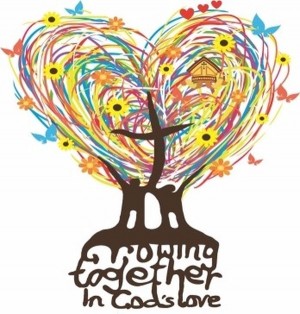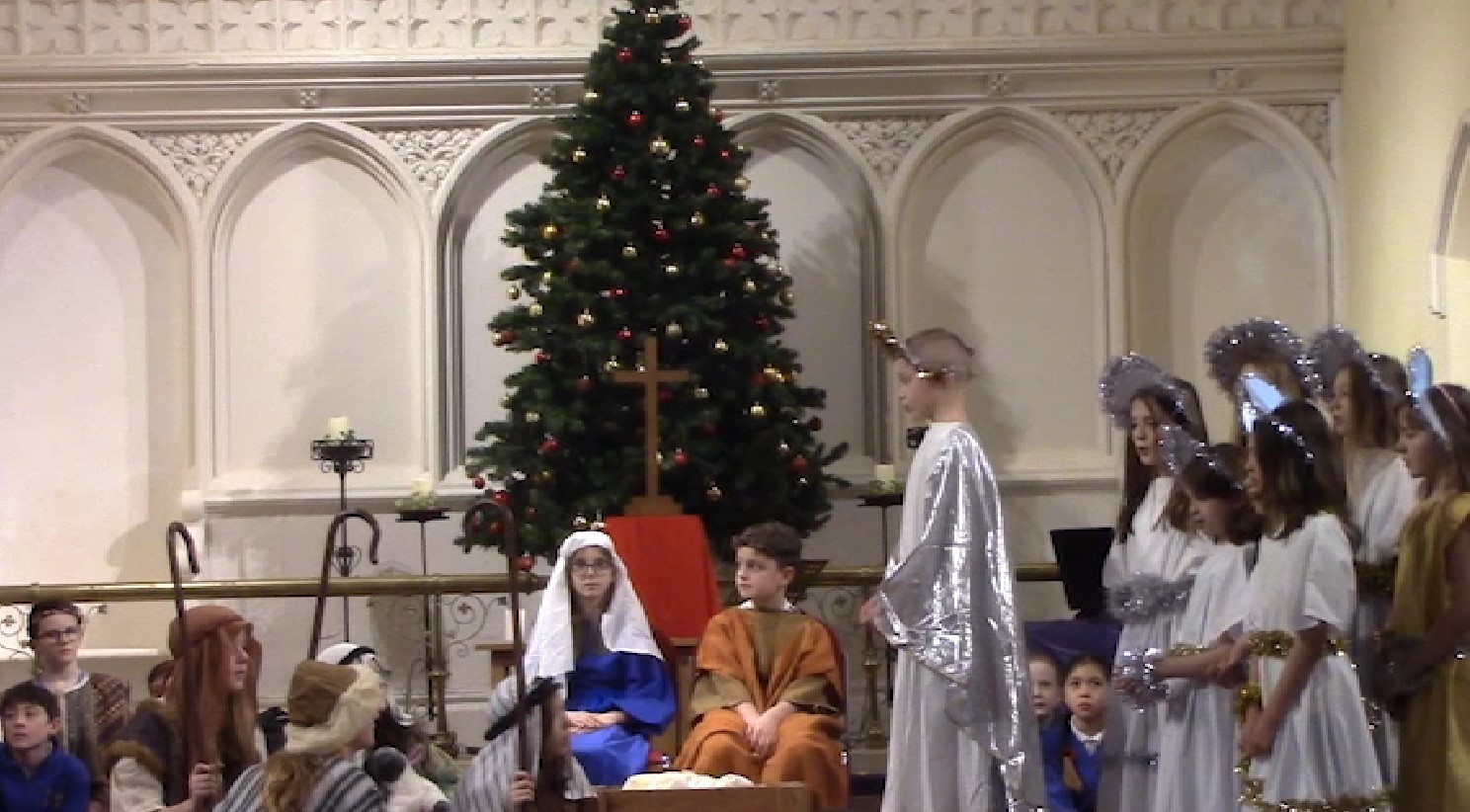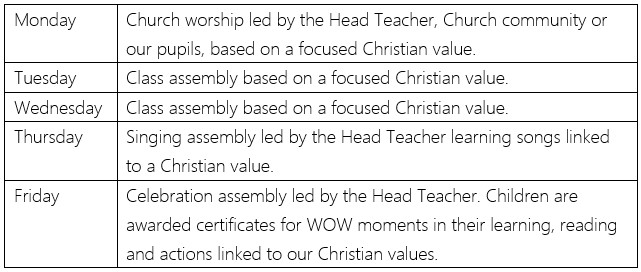Religious Education

We care for all God’s children, unconditionally. As a rural town community, the Parable of the Lost Sheep (Matthew 18:12-35) and Jesus as the Good Shepherd (John 10:11) resonates with our children who feel feeling valued and welcomed as individuals. All members of our school family, the community and the wider world are valued and respected. Each child is individually known, enabling us to ensure that every child achieves their very best.
RE Whole School Curriculum Mapping
Intent
At St Nicholas Chantry School, we place high regard on Religious Education and intend provision to be an inclusive experience, engaging all children in exploring core concepts and questions about Christianity and the other principal religions represented in Great Britain. In keeping with our school vision, our pupils should be able to appreciate and respect faiths and beliefs which may be different to their own and engage with challenging questions of meaning and purpose, which will equip them for their adult life, employment as well as lifelong learning. We also intend our RE teaching to support our children’s understanding of British values, as well as their spiritual, moral, social and cultural development.
At St Nicks we aim for all pupils to:
- learn about and from the diversity of faith and beliefs in their local, wider, British and global communities
- share their own views, ideas and experiences, in a supportive learning environment, without fear or embarrassment
- develop both respect and sensitivity to other people’s beliefs and values
- reflect upon and evaluate the role of religion and belief in the world today
- develop the ability to produce reasoned, thoughtful arguments and well-substantiated conclusions, especially when engaging with questions of meaning and ethical issues
- critically evaluate the role and place of religion in the world;
- enrich their learning through visits and visitors;
- investigate and reflect upon their rights and responsibilities
- develop the key attitude of open mindedness, sustaining their own views, agreeing and disagreeing respectfully and listening carefully to others
- engage with powerful and important questions of meaning and complex, demanding ethical issues
Implementation
Our Religious Education curriculum at St. Nicholas Chantry School is shaped by the locally agreed syllabus for RE in Somerset, known as 'Awareness Mystery and Value'. This comprehensive syllabus encompasses the major world religions, offering our students a well-rounded perspective.
In line with our status as a Church of England School, we allocate a minimum of 50% of our RE teaching time to the study of Christianity. Both the 'Awareness Mystery and Value' syllabus and the resource 'Understanding Christianity' are key components of our teaching approach. They provide a structured and progressive framework for exploring various core concepts and beliefs. By utilising the exemplars found in AMV and the planning resources available through UC we ensure that our students receive a comprehensive and balanced RE curriculum. This approach helps us offer a holistic understanding of different religious traditions and their significance.
http://awarenessmysteryvalue.org/wp-content/uploads/2022/02/AMV22-The-whole-agreed-syllabus-v1a.pdf
Teaching and learning:
- Use of religious artefacts wherever possible.
- Active learning – discussions, debates, role play and reflection.
- Enquiry based learning – asking and answering questions about life, moral and religious issues.
- Use of quality online resources such as video clips, museums and virtual tours
- Creative and expressive activities including music, art and poetry
- Circle Time so children can explore and express their thoughts and beliefs
- Visits and Visitors – whenever possible we endeavour to use first hand direct experience to build upon children’s learning in class. Visits from believers and leaders of various faiths are sought for each theme where possible and we are looking to extend our provision through visits to religious buildings.
Wider opportunities: Our school has a strong and enduring partnership with Christchurch Clevedon, providing valuable opportunities beyond the classroom. Every year, we come together for special church services during Harvest, Christmas, and Easter, enhancing our sense of community and celebration. Furthermore, the Reverend regularly joins us to lead collective worship for the entire school, fostering a sense of togetherness.

Collective Worship: Collective Worship takes place daily with a different focus.

Impact
End of Early Years Foundation Stage Expectations:
Pupils encounter religions and worldviews through special people, books, times, places and objects and by visiting places of worship. They listen to and talk about stories. Pupils are introduced to subject specific words and use all their senses to explore beliefs, practices and forms of expression. They ask questions and reflect on their own feelings and experiences. They use their imagination and curiosity to develop their appreciation of and wonder at the world in which they live.
End of Key Stage 1 Expectations:
Throughout Key Stage 1, pupils explore Christianity and one other religion (Judaism). They learn about different beliefs about God and the world around them. They encounter and respond to a range of stories, artefacts and other religious materials. They learn to recognise that beliefs are expressed in a variety of ways, and begin to use specialist vocabulary. They begin to understand the importance and value of religion and belief, especially for other children and their families. Pupils are encouraged to ask relevant questions and develop a sense of wonder about the world, using their imaginations. They talk about what is important to them and others, valuing themselves, reflecting on their own feelings and experiences and developing a sense of belonging.
End of Key Stage 2 Expectations:
Throughout Key Stage 2, pupils learn about Christianity and three other religions, (Judaism, Isalm, Hinduism) recognising the impact of religion and belief locally, nationally and globally. They make connections between differing aspects of religion and consider the different forms of religious expression. They consider the beliefs, teachings, practices and ways of life central to religion. They learn about sacred texts and other sources and consider their meanings. They begin to recognise diversity in religion, learning about similarities and differences both within and between religions and beliefs and the importance of dialogue between them. They extend the range and use of specialist vocabulary. They recognise the challenges involved in distinguishing between ideas of right and wrong, and valuing what is good and true. They communicate their ideas, recognising other people's viewpoints. They consider their own beliefs and values and those of others in the light of their learning in religious education.

